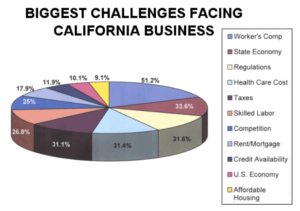Who Really Qualifies as a Dependent for Taxes?

How many dependents do you really have? Who can really be counted as a dependent? These are some of the most common questions that all taxpayers have. Can you count all of your children, live-in help, or perhaps a dog or other family pet? What about a friend who decides to crash at your place and basically mooch off you the entire year; can he or she be counted as a dependent?
As far as the IRS is concerned, there are two different kinds of dependents but there are dozens of scenarios that can fall under these two categories. There are also different rules for each type. The first type of dependent is classified as a qualifying child. The second type is a qualifying relative.
A qualifying child must be related to you, either by birth or adoption, or be a step or foster child. You must also provide more than half of the child’s total financial support and you can be the only person claiming that child on your return. To be a dependent the child must also be 18-years-old or younger, or if he or she is a full-time student, younger than 24-years-old.
The rules for being counted as a qualifying relative are much different. First, if your relative is a blood relative then he or she does not have to live with you in order to be counted. However, he or she must not provide more than half of his or her own support and that person cannot make more than $4000.
For a person who is not a blood relative to qualify as a dependent – like a lifelong friend who is down on his/her luck, or just plain lazy, or even your significant other – that person must live with you the entire year and their income must be less than $4,000 for the entire year. No one else can claim the person and you have to provide more than half of his or her financial support.
15 Ways to Improve Your Cash Flow Now
15 Ways to Improve Your Cash Flow Now By Howard Fletcher Cash management theory and techniques are well understood and practiced by treasury managers in large corporations. They use sophisticated models and cash management tools that allow them to predict and manage cash. Many of these are beyond the reach or need of small companies.…
Survey: Biggest Challenges Facing California Businesses
Survey: Biggest Challenges Facing California Businesses A recent survey was conducted to determine what business owners in California thought the biggest challenges facing their businesses were. Out of 1500 questionnaires, these are the percentage of respondents who checked off a box next to each challenge. (Respondents were allowed to select more than one box, so…
5 Strategies to Successful Cash Flow Management
5 Strategies to Successful Cash Flow Management By John Reddish How can you predict, avoid and/or, minimize the impact of a cash emergency? Managing cash flow is every manager’s challenge, every day, every year. Those managers who keep a close eye on their daily activity and emerging industry trends can help reduce their company’s exposure…
15 Tips to Streamline Your Business and Become Profitable in 2007
15 Tips to Streamline Your Business and Become Profitable in 2007 By Julian Stone Here are some tips to help you ‘cut the fat’ and improve the productivity of your business. If you apply a few of these, you’re well on your way to achieving greater profit and creating less stress! Cut the SlackersCut the…


